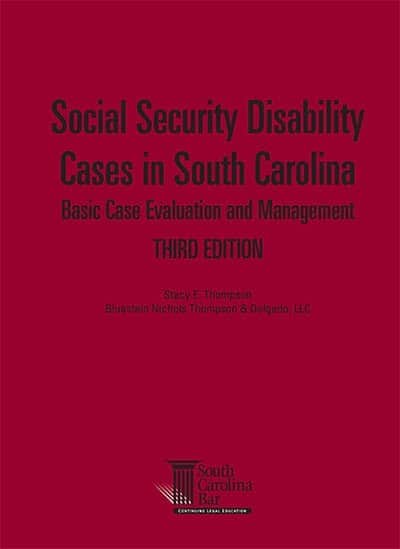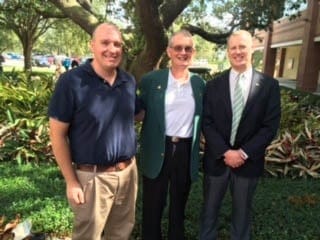Blog
January 27, 2017
This is a subject near and dear to just about everyone’s heart — our pets and companion or service animals. Whether you have a highly-trained service animal or a household pet that you adopted for the joy and companionship that a devoted pet can bring, it can be heartbreaking to see them injured or killed as a result of another person’s actions or negligence. Are you able to receive compensation after the injury or death of a pet due to a car accident, deliberate action on the part of another individual, or other negligence? Today, we’ll take a look at the answer.
January 20, 2017
For those who have served our country in the military, even if they did not directly see combat, suffering from military Post-Traumatic Stress Disorder (or PTSD) and Traumatic Brain Injuries (TBIs) may seem all too likely, if not inevitable. The two disorders carry many similarities in symptoms, such as irritability, depression, hypersensitivity, memory loss, dizziness, and an increased liklihood of dealing with drug or alcohol addiction. Due to these similarities, misdiagnosis has been rampant. This has led to serious issues in ensuring military veterans and current servicemembers are able to access the correct treatment and disability that need. One recent study, however, suggests that it may soon be far easier for medical professionals to accurately diagnose traumatic brain injury and PTSD. What does this mean for servicemembers dealing with service-connected PTSD or TBI? Let’s take a look.
January 4, 2017
More than 1.1 million car crashes in 2013 involved the use of cell phones while driving, according to the National Safety Council. The numbers have only risen in the last couple of years, with the latest figures reading at about 1.6 million, with more than 330,000 injuries. Many of these crashes involve texting while driving, and states all throughout the nation have begun to take steps to address this growing concern. While there are as of yet no federal laws on the books outright outlawing cell phone use while driving, individual states, counties, and even local municipalities have all passed their own laws and ordinances. What should you do if you’re pulled over for texting while driving in South Carolina? Let’s take a look at the facts.
December 29, 2016
We’ve written a bit before on Social Security Disability and it is one of our main areas of practice. We dedicate ourselves to representing our clients to the best of our ability when it comes to making sure their individual rights are represented while filing their SSD claims and during their SSA hearing. We’re proud to announce that our own Stacy Thompson has recently published a book on Social Security Disability cases!
December 28, 2016
New Year’s Eve is the one the biggest days of the year for parties. Whether you’re heading out on the town or to a friend’s house, hosting your own gathering, or you’re the type to curl up with a mug of tea and watch the ball drop at midnight, it’s important to stay safe and know your rights. What are your rights if the police come to your home? We have a short list of information you need to know.
December 16, 2016
We’ve mentioned before that wrecks involving tractor trailers are on the rise. Since a tractor trailer accident or collision will almost certainly cause greater damage than automobile-only accidents, it’s important to remain informed on what to do in case you’re involved in one of these collisions, as well as to know what the most likely causes are so you can take steps to keep yourself safe on the roadways. While tracking and researching the worrying rise in tractor trailer truck wrecks, we noticed some patterns in what caused the collision. We’ve put together a list of the top causes of tractor trailer collisions, to help you stay informed and cautious while sharing the road.
December 7, 2016
BNTD’s Gene Powell and his wife Mary Lou Powell have recently started a scholarship program to help students attending Mary Lou’s alma mater, the University of South Florida, on the GI Bill. The Veteran Success Last Mile Scholarship will help recipients who still need assistance in paying tuition beyond what is covered by the GI Bill. Gene and Mary Lou both have the military life in their blood — alongside Gene’s own time in the service, his three uncles all served during World War II. Mary Lou’s father was a Navy man who served at Pearl Harbor. While presenting the inaugural Veteran Success Last Mile Scholarship award during the USF Alumni Luncheon, Gene made the following remarks, which we print in full below:
November 21, 2016
As the prescription drug abuse crisis continues to grow nationwide, men and women across the country (as well as here in South Carolina) are arrested and charged in greater numbers for unlawful possession of prescription drugs. Laws on drugs, whether on simple possession or more complex issues like intent to distribute, are generally codified by the states. This means that laws on possession in California are likely to be very different than those here in South Carolina. Today, we’ll take a look at South Carolina’s laws surrounding possession of prescription drugs and what could happen if you are caught ingesting or in possession of these drugs without a doctor’s prescription.
November 11, 2016
Most conversations about Workers’ Compensation — and our previous posts on the subject, from our series on the basics you need to know to more recent posts exploring traumatic brain injury, the possible worth of a Workers Comp case, and even the definition of mental injuries in the workplace — have focused on the individual employee who has been injured or made ill due to workplace events or conditions. What we haven’t explored very deeply before is the role of a supervisor or manager in these situations. We’d like to take some time today to look at the role of supervisors or management when it comes to workplace injuries and illnesses. Supervisors and managers are employees, too, and their special responsibility both represents the workplace itself, but also affects the injured or ill employee. Are you a supervisor or manager concerned about possible legal issues if a direct or indirect […]








